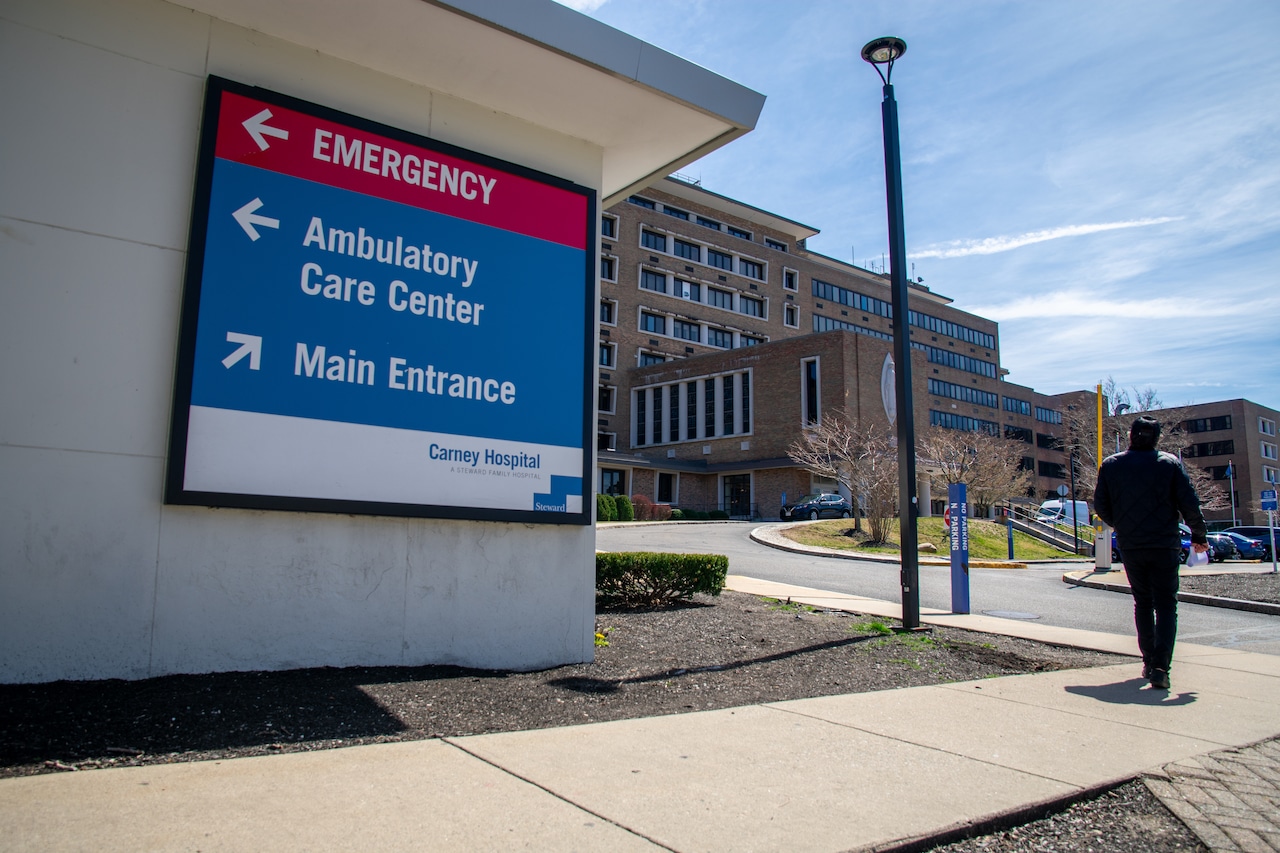
Two U.S. senators from New England have called on the federal government to be ready to step in to ensure access to care if financially troubled Steward Health Care can’t do it in the midst of its Chapter 11 bankruptcy filing.
Steward’s implosion directly affects patients, providers, and communities. Patients are anxious and uncertain about continuing their care at Steward,” U.S. Sens. Ed Markey, D-Mass., and Bernie Sanders, I-Vt., wrote to U.S. Health & Human Services Secretary Xavier Becerra.
“Surrounding health systems and community providers in Massachusetts report feeling additional pressure as patients and providers turn to them.16 Many of these facilities serve a high percentage of Medicare and Medicaid patients and are located in lower-income communities that already have limited and overburdened healthcare providers,” they wrote.
The lawmakers’ letter calls for the federal government to provide” any support or regulatory flexibilities necessary to help ensure that no one loses access to care as a result of Steward’s gross financial mismanagement.”
Steward, which owes tens of millions of dollars in unpaid rent in Massachusetts, filed for bankruptcy in Texas in the early hours of May 6, MassLive previously reported. It is now moving toward auctioning off all of its hospitals, including properties in the Bay State.
State officials, from Democratic Gov. Maura Healey on down, have repeatedly encouraged Steward’s patients to keep their appointments at the company’s Massachusetts facilities, and to seek emergency care from Steward’s hospitals as they need it.
On Wednesday, however, one member of the state’s Public Health Council painted a different picture, saying the level of care at Steward’s hospitals is “is clearly declining,” State House News Service reported.
“And that’s a message that is not really advertised, but it is real. For the ones that are next door to them, we can see that vital support services — not just having emergency room physicians and nurses, but you need to have orthopedics, neurosurgery, you need to have all of these other things to be able to care for these patients,” Dr. Eduardo Haddad, a council member said.
In their letter to Becerra, Markey and Sanders warned of ripple effects on other providers if Steward is somehow unable to serve the tens of thousands of Massachusetts patients who rely on it for care.
“Additional impacts to Steward-owned facilities or surrounding health facilities are possible, if not likely, and risk disruptions in access to care,” they wrote. “Federal, state, and local authorities must take every measure to protect against this prospect.”
Last month, the state activated an “emergency operations plan” to ensure patients had continued access to the hospital system. Healey and other officials also have stressed that state monitors remain in place at Steward’s hospitals to ensure quality of care for scores of patients who pass through those facilities every day.
Markey, joined by U.S. Sen. Elizabeth Warren, D-Mass., has kept up a drumbeat of criticism of Steward and its CEO, Dr. Ralph de la Torre, as the full scope of the company’s financial difficulties emerged into full public view.
In April, Markey, who chairs a Senate subcommittee, kept an empty chair for de la Torre after he turned down an invite to testify at a field hearing at the State House.
Earlier this month, when the company announced its bankruptcy filing, the two pols denounced what they described as the pernicious effect of private equity ownership on the health care industry.
In their letter to Becerra, Markey and Sanders also pointed out that Steward’s rocky financial state reverberates beyond Massachusetts, impacting some 30,000 workers in Arizona, Arkansas, Florida, Louisiana, Ohio, Pennsylvania, and Texas.
“Millions rely on Steward nationwide, and its bankruptcy threatens to send shockwaves across the country,” they wrote, adding that “HHS can be a valuable partner in mitigating the effects of Steward’s financial recklessness. If states and healthcare providers in states where patients receive Steward-affiliated care request support, we hope that [the department] will urgently respond.”
And even though “the responsibility for this crisis rests exclusively on Steward and its corporate collaborators, a resolution to this crisis that preserves and protects patients and providers demands involvement and collaboration among federal, state, and local authorities,” they concluded.






